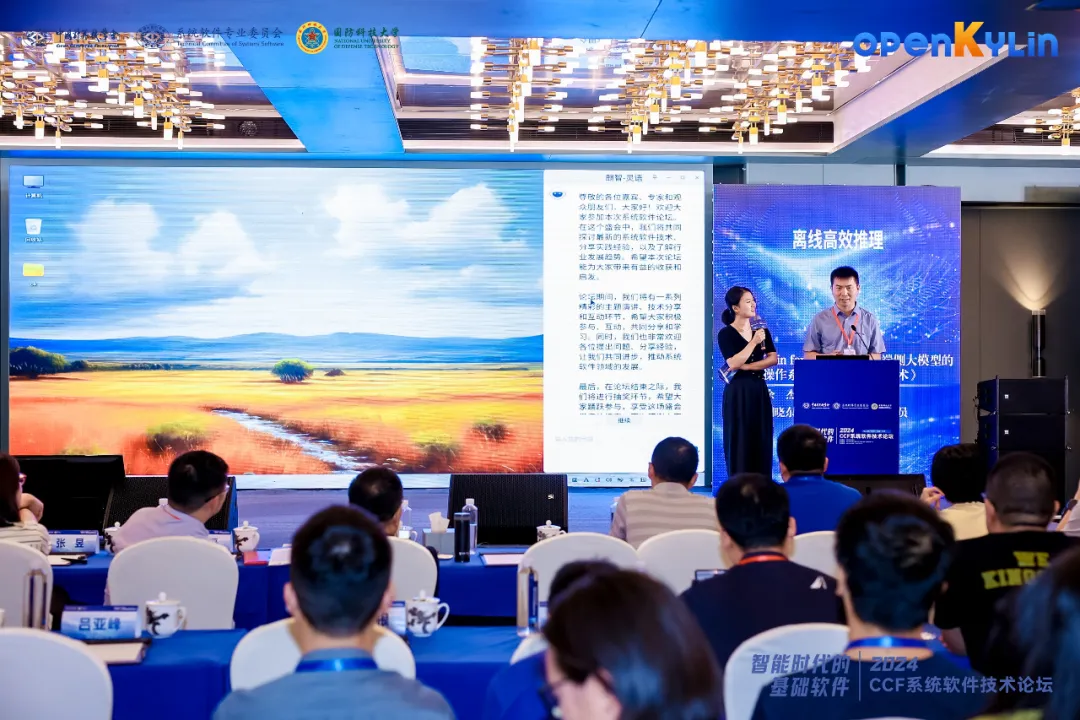openKylin for AIPC Version Officially Released
In the contemporary era of rapid development in artificial intelligence and heterogeneous computing technologies, AI Personal Computers (AIPC) have emerged, marking the beginning of a new age. AIPCs provide customized and efficient solutions by integrating cutting-edge AI technologies with complete computer systems, injecting new momentum into the advancement of intelligent living and working. Currently, leading industry enterprises are launching their respective flagship products, spearheading the development trend of the AIPC industry. As technology continues to progress and the market develops, AIPCs are expected to become a significant force driving innovation in the field of personal computing.
On July 7, 2024, at the CCF System Software Technology Forum, the openKylin for AIPC version was officially released. Members of the openKylin Community Technical Committee delivered a keynote report titled openKylin for AIPC—Operating System Intelligent Engine Construction Technology Based on Large Models for End Devices. The report introduced the series of practices by the openKylin community team in constructing the AIPC engine through technological breakthroughs at the model, system, and application layers, based on the "openKylin open-source operating system + Jiuge edge device large model". The presentation also included a demonstration of its operational effects.

The openKylin for AIPC version deeply integrates with AI technology, providing unified AI interface capabilities that seamlessly integrate with the desktop environment. It introduces a series of intelligent features including an AI assistant, intelligent text-to-image generation, and smart fuzzy search. These advancements are expected to greatly enhance users' office efficiency and creative experience. Notably, through the application of large model technology for end devices and deep integration of hardware and software, users can independently run complex AI tasks locally without relying on cloud computing resources. This fundamentally changes and reshapes the user experience.

